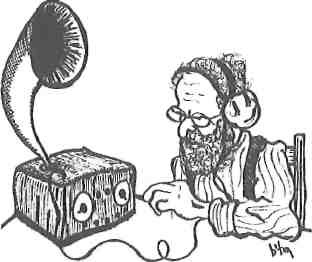During the Plastira dictatorship in 1922, five senior ex-ministers and the commander-in-chief were brought before a military court and eventually executed in one of the most lamentable episodes in our history, but there is little comparison between these two events. The trial of those who overthrew the legitimate government and seized power in this country in April, 1967, is a unique phenomenon. By contrast, in Portugal Premier Marcello Caetano and his clique were allowed to escape abroad when the Armed Forces Movement toppled that Fascist regime seventeen months ago. The Greek example has been the bright exception.

Greek and foreign journalists fol¬lowed the proceedings in the cool comfort provided by sixteen air conditioners at the Hotel Grande Bretagne where a Tress Centre’ was set up. Watching the trial over closed circuit television in stunned disbelief, they may have disagreed on some points but were unanimous in their opinions as to the worthlessness of the shallow and petty men who controlled the Greek nation for eight years by means of the power vested in their bayonets. They were men of no substance and without a philosophical or political basis.
The trials related to the 1967-74 dictatorship held thus far were, in sequential order: 1) The trial of Captain Kotsaris, charged and found guilty of the killing of a political prisoner on April 23, 1967. 2) The trial of those charged and found guilty of an attempted coup, against the present government, in February, 1975. 3) The trial of the instigators of the April 21, 1967 coup. 4) The trial of some of the Military Police accused.of tortures.
The trial of the leaders of the April 21, 1967 coup shocked the nation not because the accused refused to plead or make statements and showed no remorse for their actions, but because of its exposure of the extent to which the hierarchy of the Greek army was obsessed with a non-existant communist peril.
These phobias, as well as the plans for staving off the imaginary threat, were not brought to the attention of the government responsible for the welfare of the nation, but to the titular head of state, the king. The government was bypassed and the leaders chosen by the people contemptuously ignored. Incorporating the ludicrous concept of ‘enlightened twentieth century despotism’ into their coup, they made a beeline for the monarch.
This anachronistic and irrational reasoning is at the root of the suffering which has plagued the country since the end of the Second World War.
Although the military coup of April, 1967 was not without precedent in our history, it was unique in that there was no rationale behind it and the sole motivation of its perpetrators was self-interest and personal gain. Thus the trial revealed a group of individuals pitted against the nation and, conversely, a nation united against the conspirators.
THE trial of the torturers of the Special Interrogation Unit of the Military Police, is an illustration of man’s inhumanity to man reaching monstrous proportions, and demonstrates how ordinary individuals can be reduced to degradation. The parade of individuals who recounted their horrendous experiences at the ‘Greek Dachau’ situated in one of the more chic areas of Athens, not far from the American Embassy, made our hair stand on end. Perhaps even more shocking were revelations about the process by which young men, that is, children sent off by their parents to serve their country, were transformed into formidable torturers. They entered the army as human beings and were converted into animals. After the basic
training given to all reservists, those assigned to the Military Police were sent to a special training centre. This was the first stage of the dehumanization process which culminated with the trainees being stationed at the Special Interrogation Unit (EAT) of the Military Police (ESA). Here, under the tutelage of men such as the infamous Theophilayannakos, Hatzizisi, and Spanos, they became both the instruments and bloody projections of the leaders of the Junta. So it was that the torture of other citizens ceased to be a duty and became a-thrill.
AS the judicial process slowly wound its course, the nation watched the proceedings responding to the revelations with astonishment and abhorrence. And they are suffering a rude awakening as they begin to realize that sterile anti-communism, the unending passion and phobia of a political system that draws a mere 20% of the vote, led to their seven-year imprisonment.
Meanwhile, the poor old right-wing bourgeois Greek finds himself in total confusion. The persecution of left-wingers he had regarded as perfectly natural. Now, however, he has seen that they were not the only victims and that army officers, right-wingers like him, were torturing other right-wing officers. And the bourgeois man stops and wonders: Vre! Pou fthasame!







